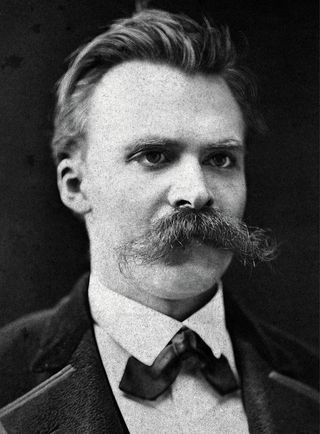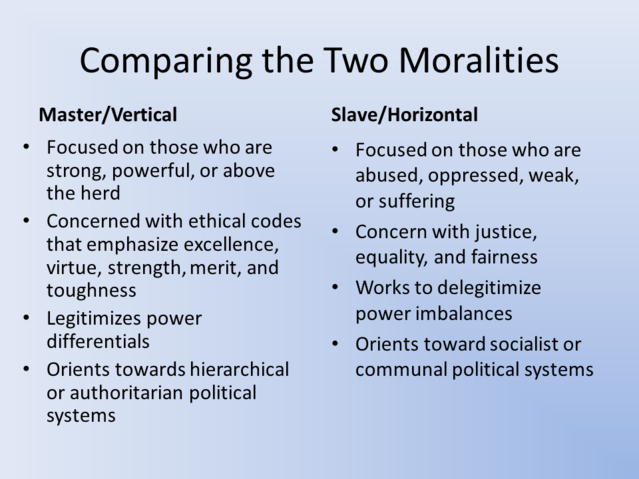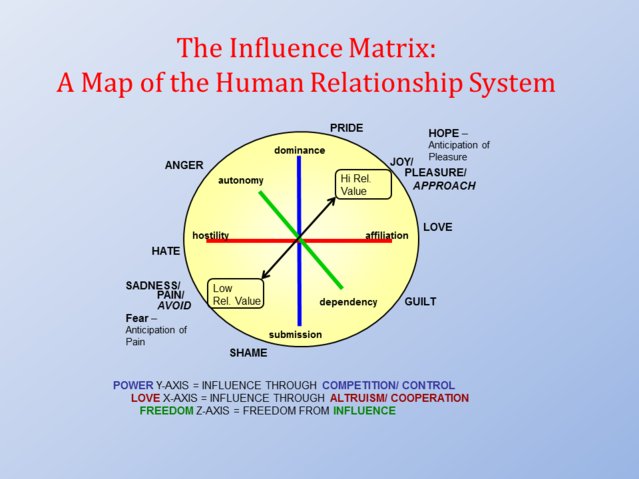Ethics and Morality
Political Correctness is All about Slave Morality
PC is about slave morality
Posted April 26, 2016
This past academic year we have seen a number of examples of political correctness “gone mad” on college campuses. We have seen many conservative speakers having to cancel their talks, we have seen Ivy League students becoming hysterical about some benign comments about Halloween costumes, and we have seen Emory students freaking out and protesting to the university president because someone scrawled Trump 2016 in chalk on the campus grounds.
As a psychologist who has a long standing record of concern about patriarchy, racism and social justice issues, I certainly am not someone who dismisses “political correctness” in its entirety. We should indeed be attentive to issues of power and privilege approach these issues with reflection. However, over the past decade, I have found myself increasingly concerned with political correctness evolving into an oppressive righteousness that are in many ways deeply misguided and incomplete and there is definitely a need to push back against it when it spills over into absurdity.

Frederick Nietzsche
I recently (re)discovered a wonderful frame that allowed me to crisply state what is wrong with modern academic leftist “political correctness” from none other than the eminent philosopher Fredrick Nietzsche. I was reintroduced to these ideas in the context of a course I was taking on Existentialism. After detailed study of many cultures, historical contexts, and various philosophies, Nietzsche articulated the view that there are two broad moral views or moral frames of mind, that of master morality and of slave morality. Slave morality is concerned with issues of justice, fairness and protection of the weak. It is called slave morality because its emphasis and focus is on those who are powerless, controlled or in positions of minority. From my unified perspective, especially that of the Influence Matrix (see below), slave morality can really be thought of as “horizontal”, red line, or affiliative-love morality. The emphasis is on placed on equality, sensitivity and connection.
However, what Nietzsche realized is that this is not enough to encapsulate all of morality. There must also be a vertical dimension to morality, one that emphasizes strength, courage, accomplishment, virtue and merit. This relates deeply to what honor cultures emphasize and certainly is a strong element in Aristotle's virtue ethics. This Nietzsche called master morality, because it referred to individuals who were in a position to rise above the herd of society and be judged on their own terms. Relationally, this is captured by the blue line on the Matrix and relates, on the positive side, to dominance, status and pride.

In many, many contexts, I have found myself arguing that we need moral systems that appreciate that in the matrices of human relations, power and love often exist in tension with one another and that our moral guides must be informed by both “horizontal” and “vertical” perspectives. It was quite heartening to become informed about Nietzsche’s delineation of this perspective so clearly. And it vividly captures for me what is wrong with political correctness in the academy. It is overly concerned with horizontal dimensions emphasizing protection and equality and simultaneously attacking the vertical dimensions (and thus at least somewhat deemphasizing virtue and merit), sometimes to the point of rewarding and justifying a victimized stance.
So, how to apply this to the real world? As you look out at the political spectrum, we can see that many progressive Democrats tend to focus on social justice issues from the vantage point of slave morality whereas many conservative Republicans think in terms of individual responsibility, merit and the achievement of power free of governmental constraints. Nietzsche's formulation (supported by the Matrix, which integrates many modern views in psychology) suggests that we do well to keep the dialectical tension between these two moral perspectives in mind.



